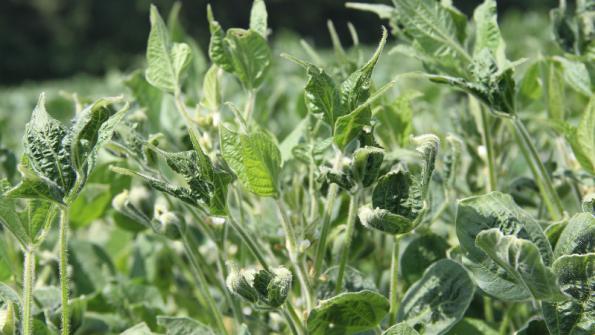
On Friday (July 7), with a dicamba drift complaint count exceeding 600 in the state, Arkansas’ Joint Agriculture, Forestry, and Economic Development Committee recommended the subcommittee of the Arkansas Legislative Council ban the spraying of formulations of the herbicide. The problems with dicamba drift have been exacerbated during the last several growing seasons with the approval of dicamba-tolerant soybeans and cotton.
The subcommittee did not act on the joint committee’s recommendation. That means the ban, unless stopped by a subcommittee lawmaker within 24 hours, will take effect. The 120-day ban would mean the herbicide is, except for exemptions for forage and pastures, effectively banned for the remainder of the 2017 growing season.
Also approved is a new penalty matrix for egregious spraying violations that could cost offenders $25,000 per incident. The previous fine cap available to the Arkansas State Plant Board was $1,000.
At the same time, Missouri – also seeing a surge in drift complaints -- announced a dicamba ban of its own. “Since Jan. 1, 2017, the Department’s Bureau of Pesticide Control has received more than 130 pesticide drift complaints that are believed to be related to dicamba, which has allegedly damaged thousands of acres of crops,” reads a Missouri Department of Agriculture press release. “The decision to issue a Stop Sale, Use or Removal Order in Missouri was made with an abundance of caution and is temporary until a more permanent solution is reached.
“’We want to protect farmers and their livelihoods. At the same time, my commitment to technology and innovation in agriculture is unwavering,” (Missouri) Director of Agriculture Chris Chinn said. “That’s why I am asking the makers of these approved post-emergent products, researchers and farmers to work with us to determine how we can allow applications to resume this growing season, under certain agreed upon conditions.’”
“Pesticide distributors and retailers must immediately stop all sales and offers of sales of all dicamba products labeled for agricultural use. All agricultural pesticide users, including certified commercial applicators and private applicators, must immediately cease in-crop, post-emergent use of all dicamba products. Products include, but are not limited to:
FeXapan herbicide plus VaporGrip Technology, EPA Registration Number 352-913.
Engenia Herbicide, EPA Registration Number 7969-345.
XTENDIMAX with VaporGrip Technology, EPA Registration Number 524-617.”
The often bumpy, circuitous path to the Arkansas ban was kicked off with multiple drift complaints in 2016 and continuing warnings from Mid-South weed scientists that widespread use of dicamba would only result in more off-target crop damage.
Ford Baldwin, weed scientist and Delta Farm Press contributor, spoke at length before the joint agriculture committee hearing Friday morning. Among his comments: “I fully understand that growers planting Xtend crops are happy with the weed control, and I know the agronomic genetics are good. In the proper programs, weed control in Xtend crops has been very good in research as it has been in several other current and developing technologies.
“This weed scientist believes herbicides are a wonderful thing if they do their intended job and they can be used without causing harm to others. In this case the second part is not happening and that is why we are here.
“There is an equally large segment that are happy with their Roundup Ready’s and do not wish to pay an increased trait fee; there are those happy with Liberty Link soybeans and wish to continue to use it as a diversity tool; some want to grow non-GMO soybeans for specialty markets for a premium; some want to grow food beans for a specialty market and so on.
“A wedge has been driven between these groups just as I predicted four to five years ago and tensions and tempers are running extremely high in the field.
“I am aware of a fight that occurred yesterday.”
About the Author(s)
You May Also Like






